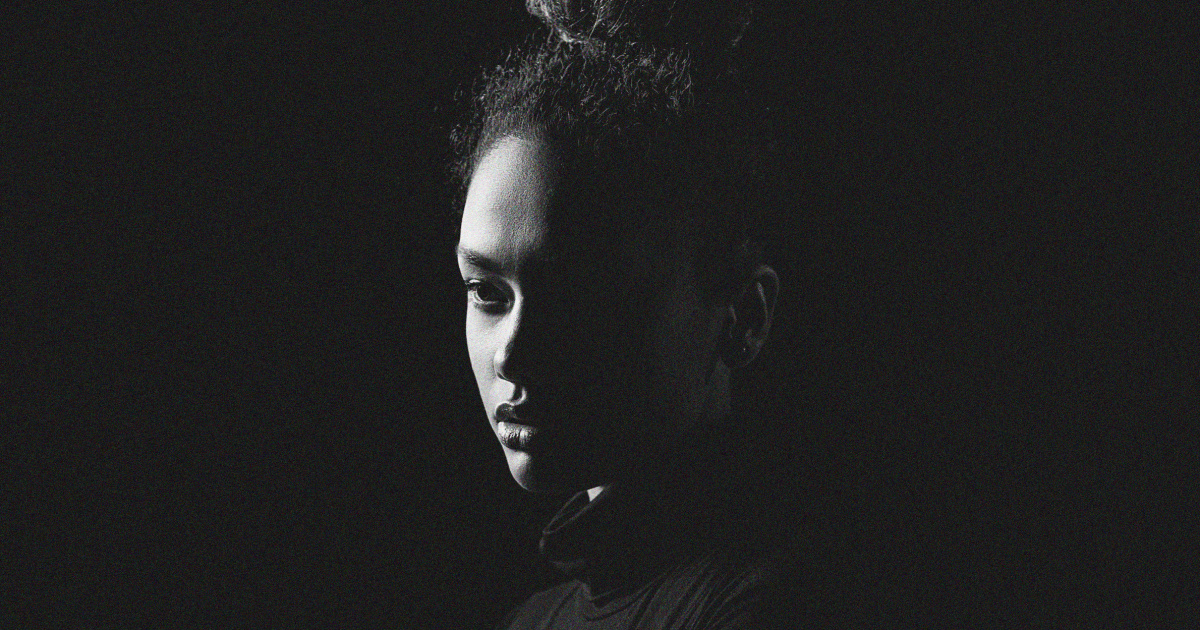The paper included a decade’s worth of data from the Centers of Disease Control and Prevention among Black women ages 25 to 44 across 30 states.
In the U.S., Black adult women are six times more likely to be killed than their white counterparts, troubling new data reveals.
A paper published Thursday in The Lancet medical journal analyzed homicide rates of Black women ages 25 to 44 across 30 states. The data was collected between 1999 and 2020 by the Centers for Disease Control and Prevention’s National Vital Statistics System.
Homicides were classified in this study as death by shooting, piercing, cutting and other forms of violence. Racial disparities varied among states; in Wisconsin, for example, Black women were 20 times more likely to be killed than white women. Black women living in Midwestern and Northeastern states were also more likely to be killed by a firearm, the paper found.
The study was designed to provide more comprehensive data about homicide rates among Black women and fill in the gaps in the existing literature, said Bernadine Waller, the paper’s lead author and a postdoctoral psychiatry research fellow at the Columbia University’s Irving Medical Center.
The article basically says it’s a pattern driven by poverty and population density. We’ve all heard that explanation before, and it seems reasonable.
But imagine you’re a middle class black woman; how are you supposed to interpret this? I imagine those women (and men too) would have very mixed feelings about being painted with such a wide brush. Not that I’d know, but I would love to hear something from their perspective.
Yep. When you normalize for poverty and population density, the crime rates are basically equal. The story isn’t about a race, the story is poor people are more likely to be murdered because they can’t choose to leave high crime rate areas.
Well, it’s also about the fact that one race is a lot more likely to be poor than another. Intersectionality and all that.
Ignoring that cultural reasons may or may not be part of the picture doesn’t help any one solve the problem either
Given this (from the grandparent of your comment)…
When you normalize for poverty and population density, the crime rates are basically equal.
…“cultural reasons” seem unlikely.
The idea of crime rates for every crime being even across all cultures is ridiculous if you take second to think about it
Well it is somewhat about race as that means more poor people are black and more non-poor people are not black. But yeah it’s stupid to make each and every observation of how black people are more affected by X when that X thing is already linked to poverty, instead of focusing on the core issue
When you normalize for poverty and population density, the crime rates are basically equal.
I don’t disbelieve you, but could you cite a source?
This paper found that the two largest driving factors were single parent households and lack of a high school education. While they did not find that economic statis was the largest direct factor, it is important to note that things like education (one of the driving factors) increase as poverty declines:
Much of the racial/ethnic homicide differentials in neighborhoods with high concentrations of African-Americans and Hispanics were explained by two of our four measures of social disadvantage, the percent female head of household and the percent persons with less than a high school education
This older paper points the finger at income inequality:
income inequality is the only independent variable with any appreciable explanatory power
This much more recent article also points the finger at inequality:
Inequality predicts homicide rates “better than any other variable”
Could you quote the part you are referring to, where they normalize for poverty and population density?
The first page is pretty much all you need for the context of the conversation. Basically, according to the paper, Black people in the US are significantly more likely to be exonerated of any crime, but especially murder. This inversely means they’re significantly more likely to be found guilty of a crime they did not commit.
The reasoning, I assume, for the person to link you that article is because of your statement about crime rates. I believe the other commenter is trying to say that crime rates are not actually equal once you normalize for poverty because of the high rate of false convictions.
Tbh, I’m not really sure what else to say about that. I just wanted to comment my thoughts on your question since I saw how rude the person you commented to was.
It’s an interesting concept, and it could certainly due with some studying. My main thought is that if a cohort (poor people) are more likely to commit crimes, it stands to reason they are more likely to be incorrectly convicted of crimes as well. If there are 7x as many crimes in a population, 7x as many incorrect convictions would be a reasonable baseline.
So, my followup question then, if when normalized for poverty or crime rate, is there still a difference in the data? I unfortunately didn’t see any discussion of such in the paper, which left me wanting.
lol. Don’t be lazy and read the article.
Here, now you don’t have to imagine:
https://www.blackpast.org/african-american-history/combahee-river-collective-statement-1977/
This isn’t a new thing. Black women have known about this for a long time.
we find our origins in the historical reality of Afro-American women’s continuous life-and-death struggle for survival and liberation.
we were told in the same breath to be quiet both for the sake of being “ladylike” and to make us less objectionable in the eyes of white people.
let alone cataloguing the cruel, often murderous, treatment we receive, Indicates how little value has been placed upon our lives during four centuries of bondage in the Western hemisphere.
Imagine you’re a 61 year old Nigerian. On average, you have one year left to live. Should you spend your last money on one 300$ hooker or 300 one dollar hookers?
On average, you have one year left to live.
No, you’re misusing the statistic you cited, which says the life expectancy at birth is 61.79 years. That figure includes infant and childhood mortality, so the average life expectancy for people who already survived childhood is always higher than that.
(Your source also shows that Nigerian infant mortality is 10x higher than it is in the US, so that skews Nigeria’s average a lot. Considering that your source shows that the Nigerian adult obesity rate is 8.9%, compared to 41.9% in the US, life expectancy at adulthood in Nigeria might even be higher than it is in the US. I’m not saying it is; I’m saying that, given the source you cited, we don’t know that it isn’t.)
I was joking but thanks for that explanation, it makes sense. My coworker from about 15 years ago was Nigerian and I showed him the stat. I remember it was 48 at the time which seemed insanely low but neither of us could understand why so he just had to accept that he only had 8 years left.
The study was designed to provide more comprehensive data about homicide rates among Black women …
While researchers did not identify the causes behind the staggering difference.
I wonder if this is because the killers are more likely to be black?
It’s kind of simple really either the reason blacks are killed more is because they are poorer in which case race is completely irrelevant. Or blacks get killed more than whites then the reason isn’t who’s being killed but who’s doing the killing. That’s the issue that needs addressing.
Investigating the victims seems to be putting the cart before the horse.
Or do black people just get convicted of murder more often than white people?
Nah.
3,200 innocent defendants exonerated in the United States since 1989
There was a total of 21,156 reported homicide cases in the U.S. in 2022
Yea with numbers like that it must be wrongfully convicted. Come on, you’re just trying to use stats to prove a wrong point. That’s a rounding error
Sorry, why do you think that only the exonerated are innocent? Also, why do you think a black person being exonerated has anything to do with a white person not being convicted at all for the same crime I don’t know.
I struggle to believe that anything close to the majority of that 21k somehow ends up being innocent.
Again- the question is not how many black people who are found guilty of murder are innocent, it’s how many white people are found not guilty for the exact same crime with the same level or greater evidence against the defendant. Or not even charged in the first place.
I have never heard of a black person having affluenza. In fact, the only black person I have ever heard of being let off for spurious reasons like ‘affluenza’ is OJ Simpson and only because he was super rich and had like 8 high-paid lawyers vs. 2 deputy district attorneys.
Found the black on “black crime is the real problem” ,racist.
I bet u don’t even know it being racist rn…
This is a common trope among racists like yourself. Aka “anti-woke”.
Are you sure you’ve read the whole comment?
Are you sure you know what the facts are?
https://www.law.umich.edu/special/exoneration/Documents/Race_and_Wrongful_Convictions.pdf
The paper included a decade’s worth of data from the Centers of Disease Control and Prevention among Black women ages 25 to 44 across 30 states.
This seems weirdly specific.
When you do a meta analysis (a study that aggregates and compares the results of existing studies rather than de novo research), you have to work pretty hard to make sure all of the studies you’re using agree with each other on definitions, the ways they aggregate the data, and so on. You have to start out by collecting a large number of papers, and then building around the ones who are most closely aligned with each other on the statistics you’re interested in studying. Some might group ages differently or report causes of death differently in a way that cannot be reconciled in a statistically reliable way.
I was a contributing author on a couple such papers, and I swore never to do them again. They can be very useful, and hopefully this one will be high impact, but as an author they’re an order of magnitude harder to write than just doing a paper on your own work.
If it’s a study they probably should be specific. And that probably makes it easier to process too.
deleted by creator
There’d likely be a self identifying trans black woman in the comments talking about how high their murder rates are… but they’re likely busy trying to not experience violence.







